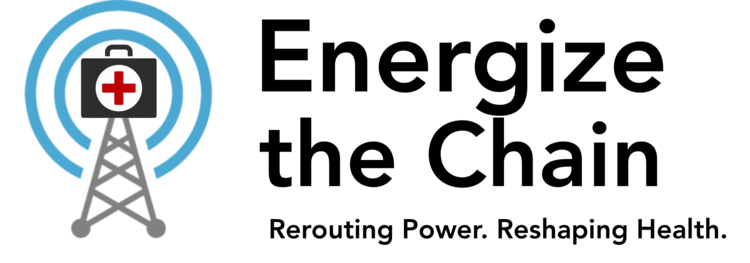Homepage

Rerouting Power. Reshaping Health.
Millions of children die each year from vaccine preventable diseases. In areas where power is scarce and vaccine refrigeration unreliable, immunization effectiveness is compromised. Energize the Chain solves this problem by facilitating public-private partnerships among ministries of health and the telecommunication industry. Capitalizing on the power and data transfer capabilities available at cell towers, we can provide reliable power and remote monitoring, which are essential to preserving vaccine effectiveness, a sustainable and scalable solution.

The Ashoka Changemakers program announces that Energize the Chain has reached the semi-finals in the global challenge Making More Health: Co-Creating a Healthier World.
The May 2015 issue of Philadelphia Weekly features Dr. Harvey Rubin and Energize the Chain in an article on Philadelphia doctors who are saving the world.
The Ebola epidemic, global response to infectious diseases control, and the threat of antibiotic resistant bacteria were just a few topics that Dr. Harvey Rubin discussed on Voice of America on October 28, 2014.
Dr. Rubin appeared on BloombergTV's Street Smart on October 7, 2014, to discuss cold chain challenges and solutions in light of the ongoing Ebola epidemic in West Africa.
Dr. Rubin will be featured as a keynote speaker at Digital Disruption 2014, a digital innovation and business transformation conference in San Jose, California, on December 8-11. He'll address the ways that EtC is forging innovative partnerships between the telecom industry and the health infrastructure in Africa and India.
Dr. Harvey Rubin spoke about Energize the Chain at a TEDx talk in New York City on September 26, 2014. He discussed the challenges of maintaining the cold chain and the promises of partnering with mobile telecommunications companies.
Forbes.com's Faye Flam talks to Harvey Rubin, MD, PhD, about challenges in maintaining the cold chain for a future Ebola vaccine. Dr. Rubin notes that with Ebola, lack of refrigeration for biologics and vaccines represents part of a bigger problem with infrastructure. What we need, he says, is an international organization dedicated to tracking and responding to outbreaks of infectious diseases.








